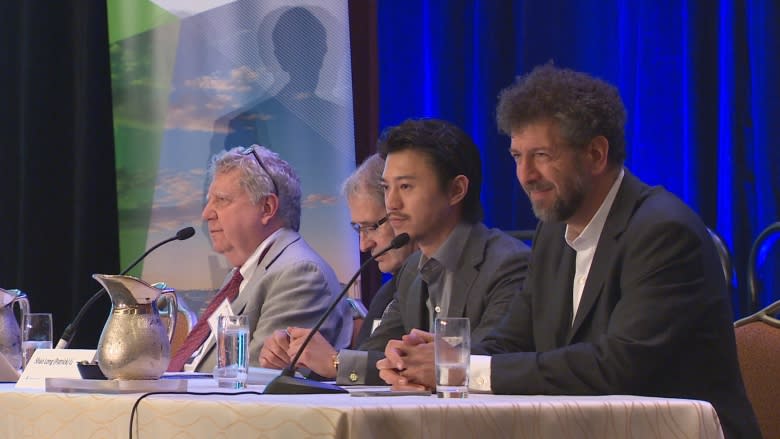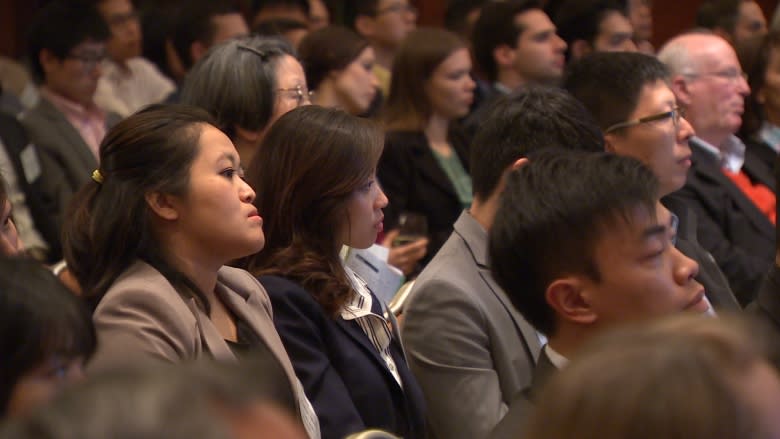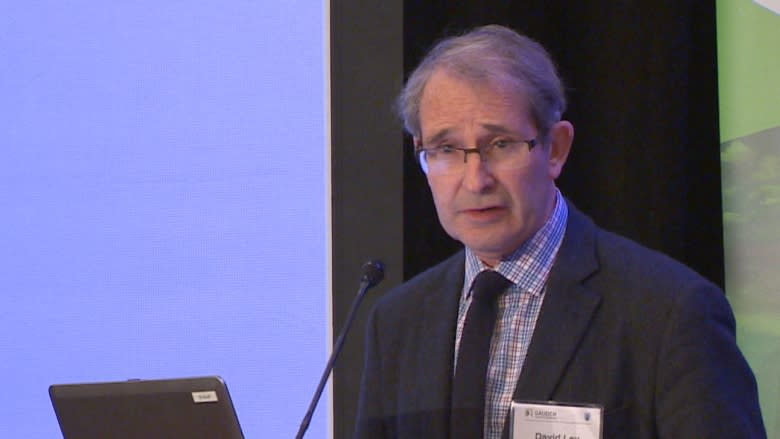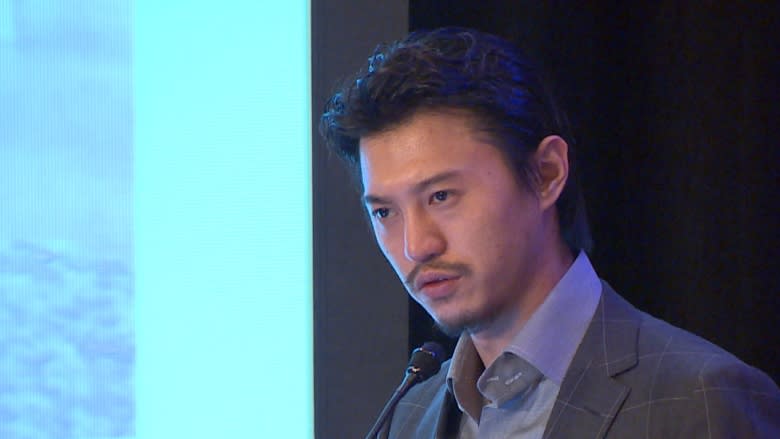Global real estate investment debated at UBC forum in Vancouver
Residential real estate is turning into a global commodity market with specific hot spots like Vancouver, says Richard Koss, the director of the International Monetary Fund's Global Housing Watch initiative.
"The increase in home prices is modest in most countries," said Koss. "What's difficult is why are some markets picked more than others?"
Koss spoke as part of a panel on global real estate investment on Thursday evening organized by the University of British Columbia's Centre for Urban Economics and Real Estate and the Centre for Chinese Research.
Moderator Christopher Rea, the director of the Centre for Chinese Research, said the goal of the event was to "share perspectives" on Vancouver's booming real estate market. The event attracted about 200 people.
Other panelists included UBC professors Tsur Somerville and David Ley and real estate developer Shao Long Li.
Kosh said his research shows that high-stress real estate markets often show in cities and regions like Edmonton and Calgary with high commodity production.
The push away from China
Geography professor David Ley focused his part of the discussion on how immigration has impacted countries like Canada and the U.S., which have often had a shortage of capital and labour.
He said Canada first brought in immigrants from Europe, then Asia, and most recently has concentrated on China with the advent of the immigrant investor program.
Of all these groups, he pointed to Chinese immigrants — 85 to 90 per cent of whom became homeowners in their first years in Canada.
Ley cited their desire to evade anti-corruption campaigns, escape health risks stemming from pollution, and concerns about food security as factors contributing towards moving to markets like Australia, Canada and the U.S.
A Chinese website linking investors with global markets recently estimated $220 billion will be spent in overseas real estate by 2020, Ley said, adding that data from the U.S. shows a propensity towards the luxury market — the average price of a home purchased by a Chinese national in the U.S. was three times the price of homes bought by their American counterparts.
Ley also pointed out that 73 per cent of homes bought by Chinese buyers in the U.S. were paid in cash.
But Ley also reminded the audience that Chinese capital was not the only factor leading to sky-high real estate prices in Vancouver. He said the low Canadian dollar and a lack of overall supply was also at play.
Vancouver an attractive option
Real estate developer Shao Long Li spoke with the crowd about the many aspects that make Vancouver an attractive city for Chinese investors.
He began by explaining that real estate often takes a much larger portion of Chinese investment portfolios than in Western countries — 50 per cent as opposed to five to 10 per cent.
Li said Vancouver's quality of life, education standards, and multiculturalism are just some of the factors that make it one of the key global cities to invest in. He also noted the stability of the housing market, the low crime rate and the accessibility of Chinese-oriented businesses as a plus.
And Li said banks have made it easy for Chinese nationals to get a mortgage in Canada, with low and stable interest rates an added bonus. He also pointed out that buyers can afford a larger, nicer home in Vancouver than they could for the same price in a city like Shanghai.
Global move to cities
But it's not just capital from China that's causing a housing crunch in Vancouver, according to UBC business professor Tsur Somerville.
He said many people around the world are moving into cities, especially places like Vancouver that offer attractive amenities.
He also reminded the audience that, over time, immigrant groups have become well-integrated in Vancouver, especially second-generation immigrants.
Somerville said the price of single-family housing south of the Fraser rose at about the same rate as in Vancouver until 2000, at which point the cost of detached houses began to increase exponentially — a pattern repeated in similar cities around the world.
Somerville said it's difficult to point to a single factor leading to the most recent craze in real estate investment in Vancouver, adding that in 2015, "there was a dramatic change in Chinese capital flows."
As for the future of real estate in Vancouver, he said the plight of the Canadian dollar, the end of the immigrant investor program, and currency restrictions are all likely to be factors.
But, he added, owning property in a city with a growing population will continue to be a strong investment option.
With files from Megan Batchelor





